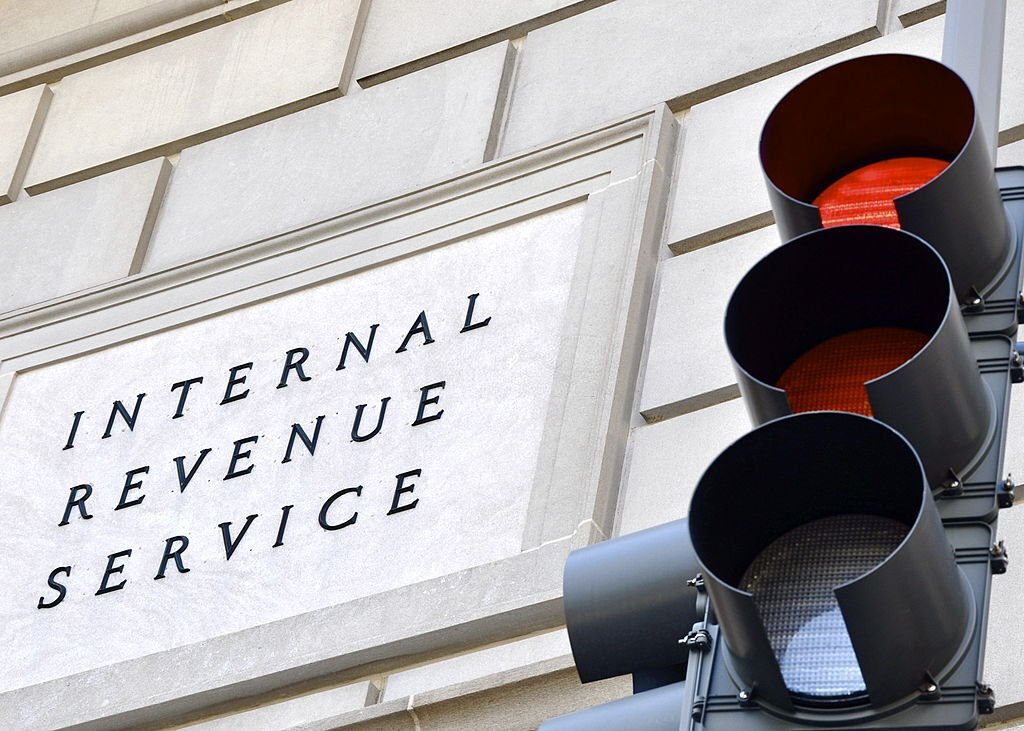The Treasury Department and the IRS said on June 17 that a new initiative to shut down a major tax loophole used by wealthy individuals and large partnerships could raise more than $50 billion in revenue over 10 years.
Treasury and the IRS issued three pieces of guidance on Monday focused on partnerships following discoveries by IRS audit teams. The IRS said it currently has tens of billions of dollars of deductions claimed in these transactions under audit.
The new guidance is designed to stop the use of “basis shifting”—transactions where an individual or business moves assets to related party to avoid paying taxes.
“In these complex moves, high-income taxpayers and corporations strip basis from assets they own where the basis is not generating tax benefits and then move the basis to assets they own where it will generate tax benefits without causing any meaningful change to the economics of their businesses,” the IRS said. “These basis shifting transactions allow closely related parties to avoid taxes.”
The agency also announced on Monday the formation of a new group under the Office of Chief Counsel dedicated to developing guidance on partnerships, including closing tax loopholes. The office will work closely with a new pass-through work group in the IRS Large Business and International (LB&I) division that will be formally established this fall.

“This announcement signals the IRS is accelerating our work in the partnership arena, which has been overlooked for more than a decade and allowed tax abuse to go on for far too long,” IRS Commissioner Danny Werfel said in a statement. “We are building teams and adding expertise inside the agency so we can reverse long-term compliance declines that have allowed high-income taxpayers and corporations to hide behind complexity to avoid paying taxes. Billions are at stake here.”
Tax filings from pass-through businesses with more than $10 million in assets jumped to nearly 300,000 filings in 2019, 70% more than 2010. During that same time, audit rates fell from 3.8% in 2010 to 0.1% in 2019. This contributed to an estimated $160 billion per year tax gap attributed to the top 1% of filers, the Treasury Department said.

“Treasury and the IRS are focused on addressing high-end tax abuse from all angles, and the proposed rules released today will increase tax fairness and reduce the deficit,” Treasury Secretary Janet Yellen said in a statement. “Thanks to resources from President Biden’s Inflation Reduction Act, Treasury and the IRS have the tools to stop longstanding abuses.”
The first piece of guidance issued by Treasury and the IRS is a notice of intent to issue proposed regulations that previews two future proposed rules. The first notice of proposed rulemaking (NPRM) would provide mechanical rules under the partnership tax provisions regarding the effects of basis adjustments resulting from related-party partnership basis shifting transactions. The proposed regulations, once finalized, would eliminate inappropriate tax benefits created from these abusive transactions between related parties, Treasury said.
The other NPRM would apply a single-entity approach with respect to interests in a partnership held by members of a consolidated group, which are groups of corporations that share an 80% vote and value stock ownership and file a consolidated tax return. The regulations, once final, would prevent partnership basis shifting among members of a consolidated group.
Second, Treasury and the IRS are also releasing an NPRM that would require taxpayers and their material advisors to report if they and their clients are participating in partnership basis shifting transactions. The goal of the NPRM is to provide the IRS with additional information to better assess the scale and characteristics of the abuse and help direct IRS enforcement resources, Treasury said. The threshold for reporting would be set at $5 million or more of positive basis adjustments generated through covered transactions in a single tax year and for which no tax was paid.
Finally, Treasury and the IRS are releasing a revenue ruling that provides that certain related-party partnership transactions involving basis shifting lack economic substance. The ruling will support the IRS’s position in current and future audits and litigation that many of these transactions violate the codified economic substance doctrine because the transaction creates no meaningful change to the economics of the parties as compared to the tax benefit or has no substantial business purpose, Treasury stated on Monday.
“In essence, basis shifting amounts to a shell game where sophisticated tax maneuvers take place by shifting the basis of assets between closely related entities, ultimately allowing these complex partnership arrangements to hide from a tax bill,” Werfel said. “These complicated maneuvers take time and resources for the IRS to uncover. The new guidance is aimed at telling promoters that the IRS considers these transactions inappropriate, and we are bringing new Inflation Reduction Act resources into play to beef up our compliance work in the overlooked partnerships and pass-throughs area.”
The initiative comes as the IRS capitalizes on the additional funding it received through the Inflation Reduction Act to crack down on wealthy tax dodgers who either evade or significantly decrease their tax bills through loopholes and other methods.
The agency said it has launched audits on 76 of the largest partnerships with average assets over $10 billion that includes hedge funds, real estate investment partnerships, publicly traded partnerships, large law firms, and many other industries. The IRS said on Monday that these complex audits are proceeding and in various stages of the process—and can take several years depending on the size and complexity of the partnerships.
In addition, the IRS said in January that it has recouped roughly $482 billion in back taxes from rich tax cheats since October 2023 because of improvements that have been made to modernize the agency using Inflation Reduction Act funding.
As part of the increased focus on this area, IRS Chief Counsel Margie Rollinson announced the creation of a new associate office that will focus exclusively on partnerships, S-corporations, trusts, and estates.
“This new associate office will allow the chief counsel organization to focus more directly on this complex area of the tax law and allow more attention to legal guidance and other priorities in the partnership arena,” Rollinson said.
The associate office will be drawn from the current Passthroughs and Special Industries (PSI) Office, according to the IRS. The “special industries” piece of the chief counsel’s former PSI Office will form a new associate office that will focus on energy, credits and incentives, and excise taxes, joining another office that has been focused on clean energy guidance.
The new chief counsel office will work in close coordination with IRS business units, including LB&I, which earlier announced plans to establish a special work group focused on pass-throughs, including complex partnerships. Although work has already started in this area, LB&I plans to formally establish the new work group this fall.
Werfel noted that for the new work groups in both chief counsel and LB&I, the IRS plans to bring in outside experts with private-sector experience regarding pass-throughs to work alongside in-house experts at the agency.
“This is an area where the IRS has not had the resources to keep pace with growth in the number of partnerships and the sophisticated tax maneuvers taking place,” Werfel said. “We are continuing to accelerate our work in this area. We need to hone-in on areas where we believe non-compliance has proliferated during the last decade of IRS budget cuts, and partnerships represent an area where complex business structures have allowed millionaires and high-income earners to avoid paying what they legally owe while average taxpayers play by the rules.”
Thanks for reading CPA Practice Advisor!
Subscribe Already registered? Log In
Need more information? Read the FAQs




